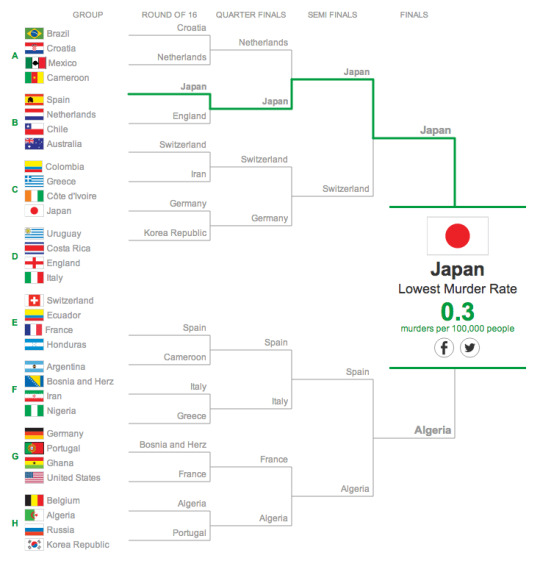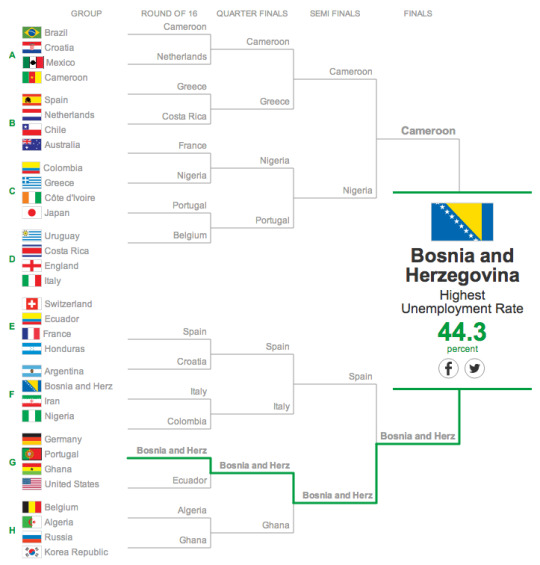Photo
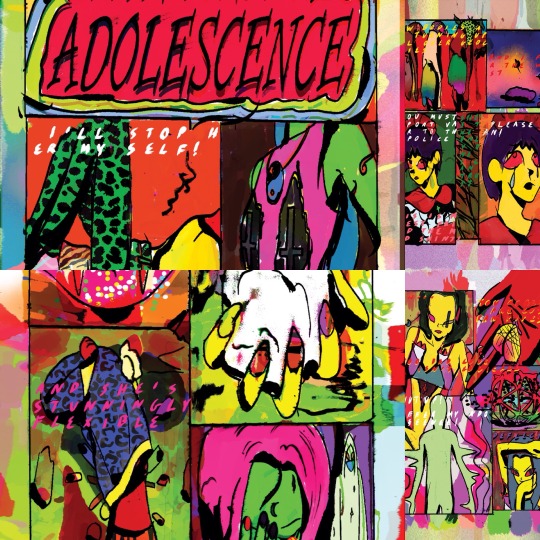
O hai thar, everyone! The comics anthology š! #22 will be out very soon (August 22nd), and I happen to be in it! I’m super glad/excited/honored to take part in this issue dedicated to “Fashion’, as everyone’s contributions look absolutely amazing (I mean, check this out). I’m practically screaming! Thank you kushkomikss for inviting me :’-)
Above is a sneak peek of my comic, “g” (from GeoCities). It’s a story with bright colors and challenging lettering about a girl named Pan Pipes, her BFF the maid Shinji, and a weeaboo vampire called Vapor Waves. Enjoy the silliness!
29 notes
·
View notes
Photo



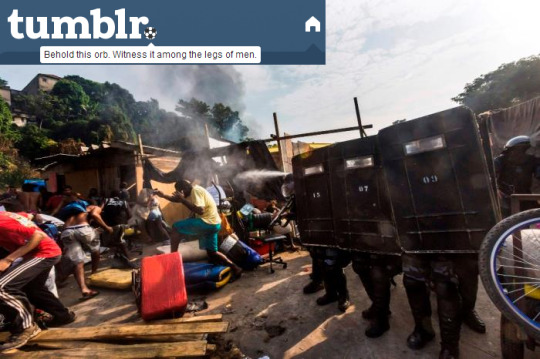



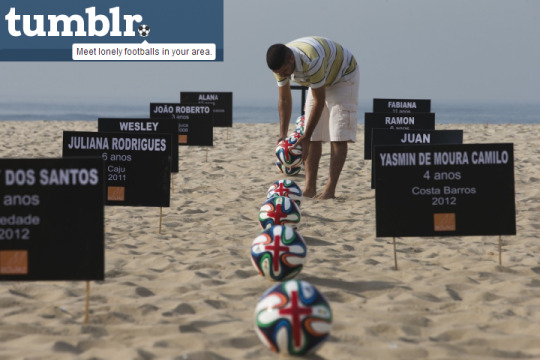

"Happy" World Cup, Brazil.
(Here are some sources.)
68K notes
·
View notes
Quote
積ん読 (tsundoku): the act of leaving a book unread after buying it, typically piled up together with other such unread books.
(via p-dpa)
161 notes
·
View notes
Photo

Heart of darkness - Joseph Conrad. Pg. 6. Penguin popular classics
1 note
·
View note
Photo
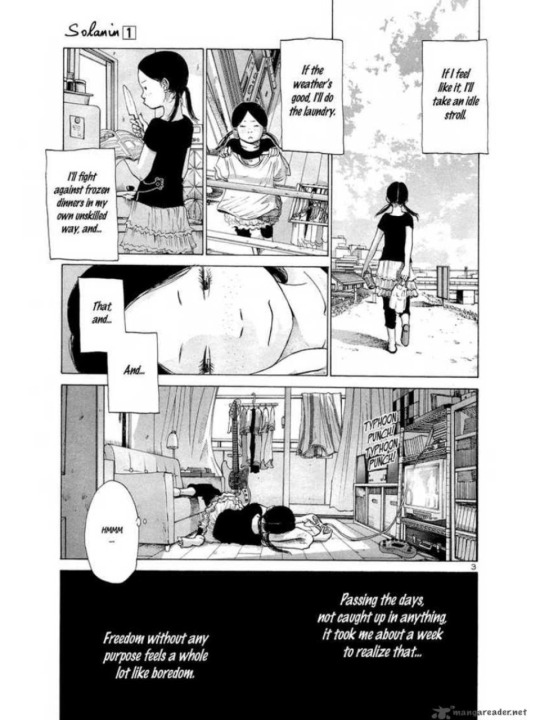
Asano Inio - Solanin, ch.2 pg. 5.
4 notes
·
View notes
Photo
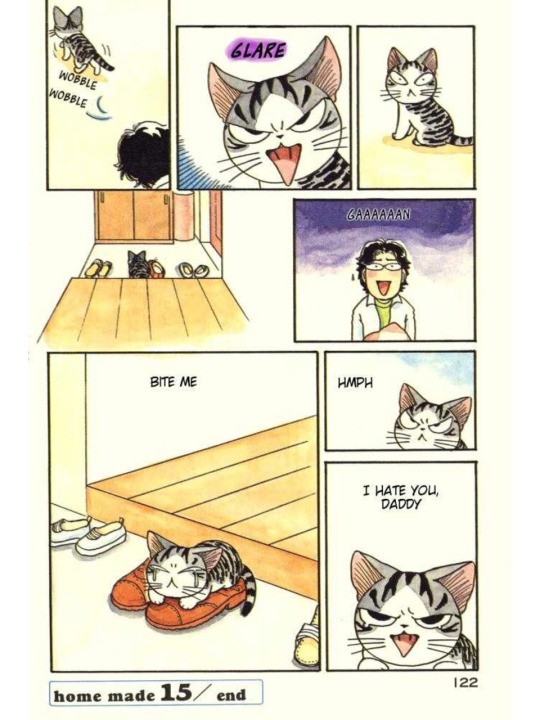
Kanata Konami - Chi's Sweet home.
84 notes
·
View notes
Text
A.K. Something Like an Autobiography - Sounds of the Taishō
”(…) The sounds I used to listen to as a boy are completely different from those of today. First of all, there was no such thing as electric sound in those days. Even phonographs were not electric phonographs. Everything was natural sounds. Among these natural sounds were many that are lost forever. I will try to recall some of them.
The resounding “boom” of midday. This was the sound of the cannon at the Kudan Ushi-ga-fuchi army barracks, which fired a blank each day precisely at noon.
The fire-alarm bell. The sound of the fire-watchman’s wooden clappers. The sound of his voice and the drumbeats when he informed the neighborhood of the location of a fire.
The tōfu seller’s bugle. The whistle of the tobacco-pipe repairman. The sound of the lock on the hard-candy vendor’s chest of drawers. The tinkle of the wind-chime seller’s wares. The drumbeats of the man who repaired the thongs of wooden clogs. The bells of itinerant monks chanting sutras. The candy seller’s drum. The fire-truck bell. The big drum for the lion dance. The monkey trainer’s drum. The drum for temple services. The freshwater-clam vendor. The nattō fermented- bean seller. The hot-red-pepper vendor. The goldfish vendor. The man who sold bamboo clothesline poles. The seedling vendor. The night time noodle vendor. The oden (dumplings-and-broth) vendor. The baked-sweet-potato vendor. The scissors grinder. The tinker. The morning-glory seller. The fishmonger. The sardine vendor. The boiled- bean seller. The insect vendor: “Magotarō bugs!” The humming of kite strings. The click of battledore and shuttlecock. Songs you sing while bouncing a ball. Children’s songs.
These lost sounds are all impossible to separate from my boyhood memories. And all are related to the seasons. They are cold, warm, hot or cool sounds. And they are allied with many different kinds of feelings. Happy sounds, lonely sounds, sad sounds and fearful sounds. I hate fires, so the sound of the fire alarm and the fire-watchman’s voice and drum shouting out the location of the fire were sounds that struck me with terror. “Bong, bong! Fire in Kanda district, Jinbōchō’.” At such noises I burrowed down under the covers and tried to make myself small.
(…)
But let me return to the sounds of Taishō. All of them carry memories for me. When I saw the child of the freshwater-clam vendor, who raised a pitiful wail to sell his goods, I felt fortunate in my own lot in life. Noon on a stifling summer’s day when the hot-red-pepper vendor passed by, I remember holding a bamboo rod for catching cicadas and studying the insects’ movement in the oak tree overhead. At the sound of a humming kite string I see myself standing on Nakanohashi bridge clutching the string under a windy winter sky almost strong enough to take it away from me.
If I were to continue enumerating the somewhat sad childhood recollections that arise from sound stimuli, there would be no end to it. But as I sit here and write about these childhood sounds, the noises that assail my ears are the television, the heater and the sound truck offering toilet paper in exchange for old newspapers; all are electrical sounds. Children of today probably won’t be able to fashion very rich memories from these sounds. Perhaps they are more to be pitied than even that freshwater-clam seller’s child.”
in Akira Kurosawa - Something Like an Autobiography. Vintage books, 1983. pp. 33-34
1 note
·
View note
Text
A.K. Something Like an Autobiography - The pool incident
”(…) There is one more incident I would like to relate about my brother. (…) my father suddenly decided to start taking us all to the Suifuryuu practice pool, which was built out into the Arakawa River. At this time my brother was already (…) swimming around the practice pool with a first rate over-arm crawl stroke. (…)
Because I was the youngest child my father spoiled me. But how irritated he must have been to see me carrying on like a girl, playing patty-cake and cat’s cradle with my older sisters. He said if I learned to swim and got tanned by the sun - even if I just got a suntan without learning to swim - he would give me a reward. But I was afraid of the water, and I never entered the practice pool. It took many days of scolding by the swimming teacher for me even to get wet up to my navel.
(…)
Then one day, when I was finally learning how to kick my feet (…) holding on to a log floating in the river, my brother appeared. He came rowing up to me in a boat and offered me a ride. Rejoicing, I reached out my hand and let him pull me up into the boat. As soon as I was on board, he began rowing vigorously out toward the middle of the river. Just when the flag and the reed blinds of the poolside hut began to look very small, he suddenly pushed me into the river.
I flailed with all my strength to keep afloat and reach the boat with my brother in it. But as soon as I came close, he rowed away from me. After he repeated this action several times, my strength drained from me. When I could no longer see the boat or my brother and had already sunk below the surface, he grabbed me by my loincloth and pulled me up into the boat.
Shaken and surprised, I found there was nothing wrong with me except that I had swallowed a little water. As I sat gasping and wide-eyed, my brother said, “So you can swim after all, Akira.” And sure enough, after that I wasn’t afraid of the water any more.I learned to swim, and I learned to love swimming.
On the way home that day my brother bought me some shaved ice with sweet red-bean sauce. As we ate, he said, “Akira, it’s true that drowning people die smiling-you were.” It made me angry, but it had seemed that way to me, too. I remembered having felt a strangely peaceful sensation just before I went under.”
in Akira Kurosawa - Something Like an Autobiography. Vintage books, 1983. pp. 11-12
#Akira Kurosawa#Heigo Kurosawa#siblings#Though love#Learning the hard way#Water#near death experiences
1 note
·
View note
